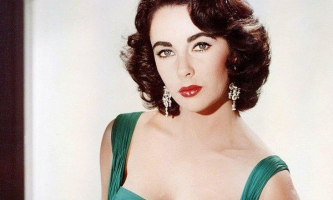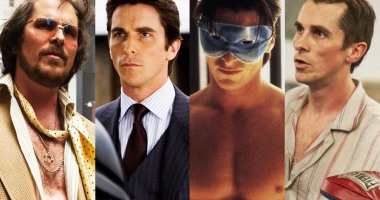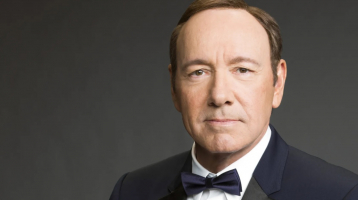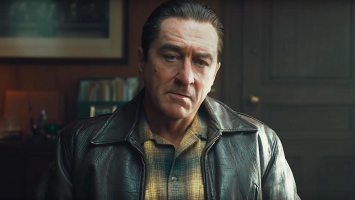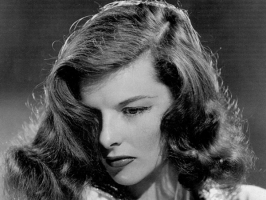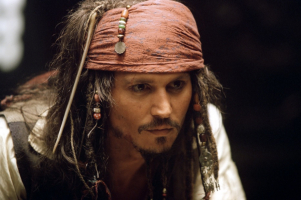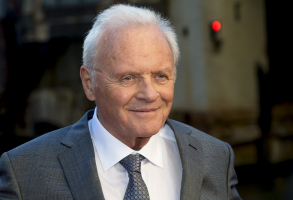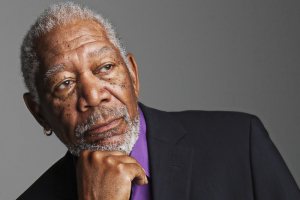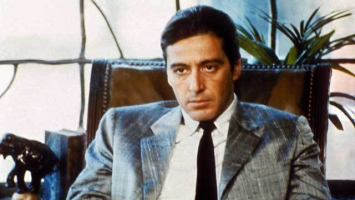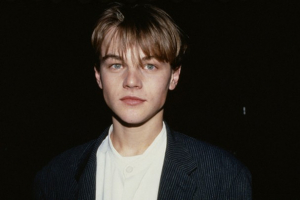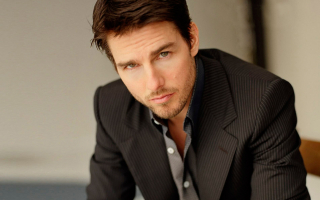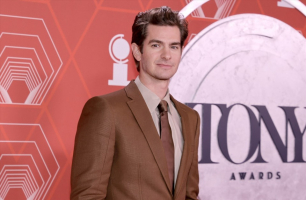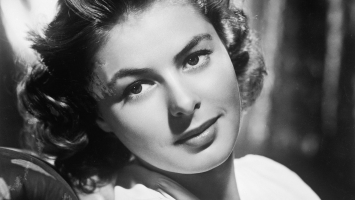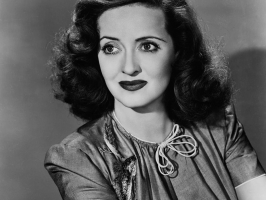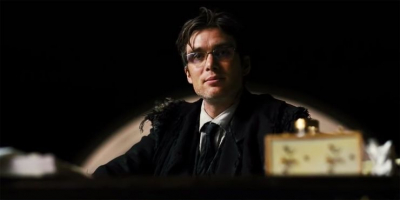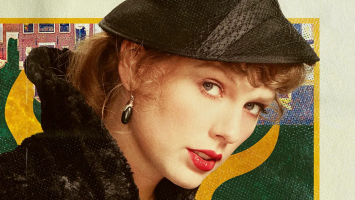Top 10 Best Movies of Quentin Tarantino
Whenever someone mentions the term “best director”, Christopher Nolan and Quentin Tarantino instantly come to our mind. These two director geniuses have ... read more...presented to us tons of masterpieces, with their beautiful cinematography and intriguing plotlines. Toplist has made a summary article about Nolan’s best works once, and now it’s Tarantino’s turn. Let’s revisit some of his greatest films to date.
-
Tarantino's breakthrough picture, Pulp Fiction, remains the greatest milestone in his career for valid reasons. Tarantino, in many ways, refines and builds upon the brilliance shown in his debut work, Reservoir Dogs. You still have criminals in black-and-white suits, shooting bullets on their way to commit crimes. However, Jules (by Samuel L. Jackson, which should have gained him an Oscar) and Vincent (by John Travolta) have more intensity and nuance than any of Tarantino's first film's crooks.
A second feature film should not be as brazen and arrogant as Pulp Fiction, yet Tarantino is unafraid to experiment with his technique. It's a film that continuously surprises the viewers, which is sort of the goal. Each main character in this film believes they have everything figured out and understand how the system works. They are utterly certain about their lifestyles and actions, until Tarantino arrives to upend everything and reveal what these individuals are really about.
Release year: 1994
Stars: John Travolta, Uma Thurman, Samuel L. .Jackson
IMDB score: 8.9/10
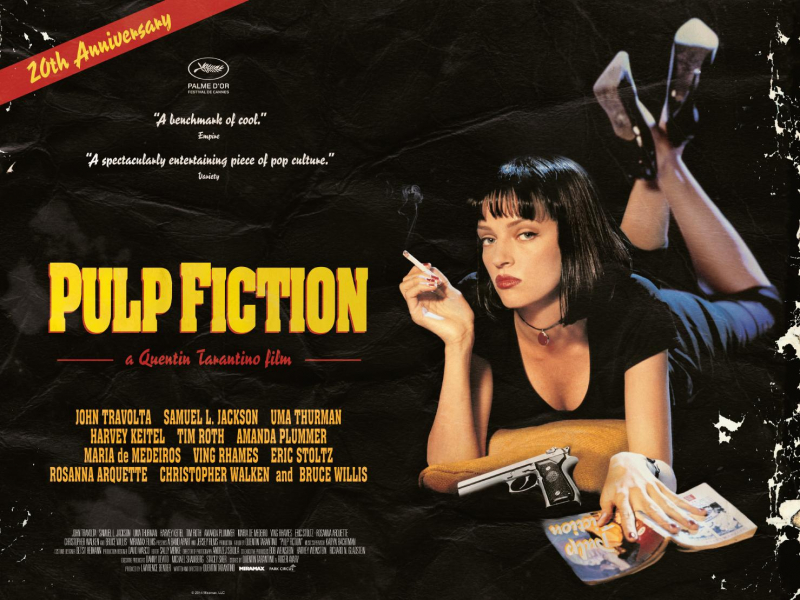
Source: IMDB 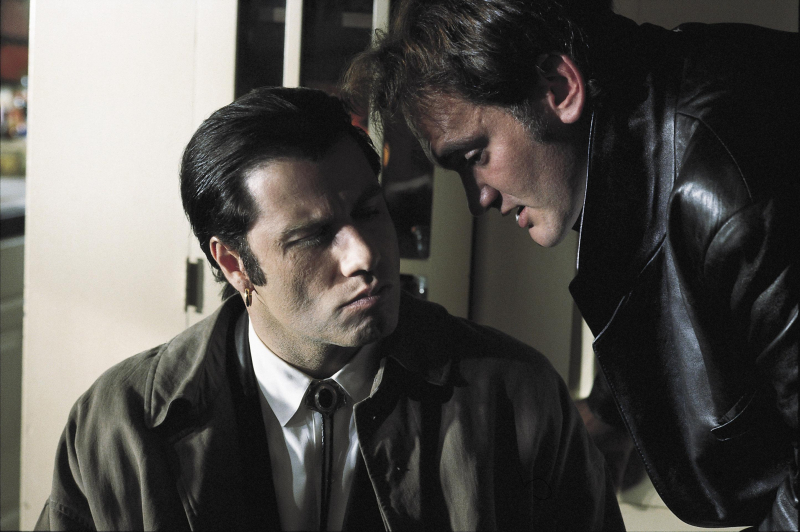
Source: IMDB -
Django Unchained is Tarantino's first picture without his lifelong editor, Sally Menke, who died tragically in 2010. Unchained suffers from her absence, since the film is not as taut as Tarantino's previous work. This was Tarantino's longest picture to date, at 2 hours and 45 minutes. The film revels in the length of each shot and sequence, to the point that it loses its momentum.
Django Unchained is obsessed with what it takes to be "civilized," continually hammering away at assumed society conventions. Even the noble Dr. King Schultz (by Waltz) participates in brutal murder, but since it is approved by the state, he is not only allowed to do so, but also got lots of money for his actions.
Django (by Jamie Foxx) is a groundbreaking figure, because he lives outside of these constraints. He has been liberated from slavery and given the means necessary to recuse his wife Broomhilda (by Kerry Washington). Other characters flounder in the filth of American society, while Django is elevated to a legendary level. He understands that the best way to cope with such a dysfunctional society is to set it on fire.
Release year: 2012
Stars: Jamie Foxx, Christoph Waltz, Leonardo DiCaprio
IMDB score: 8.5/10
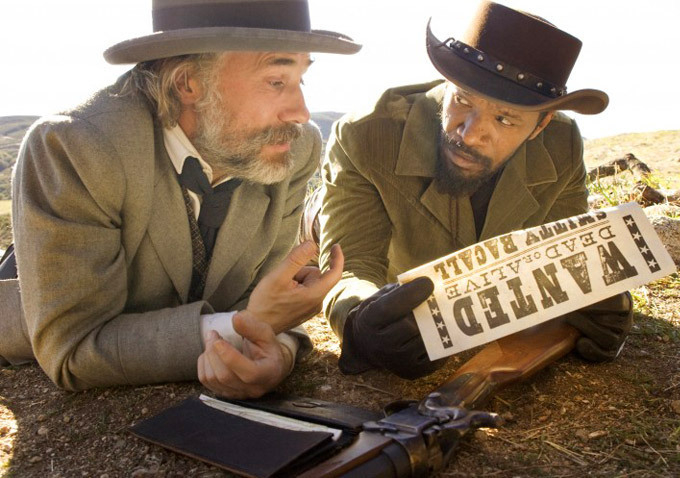
Source: IMDB 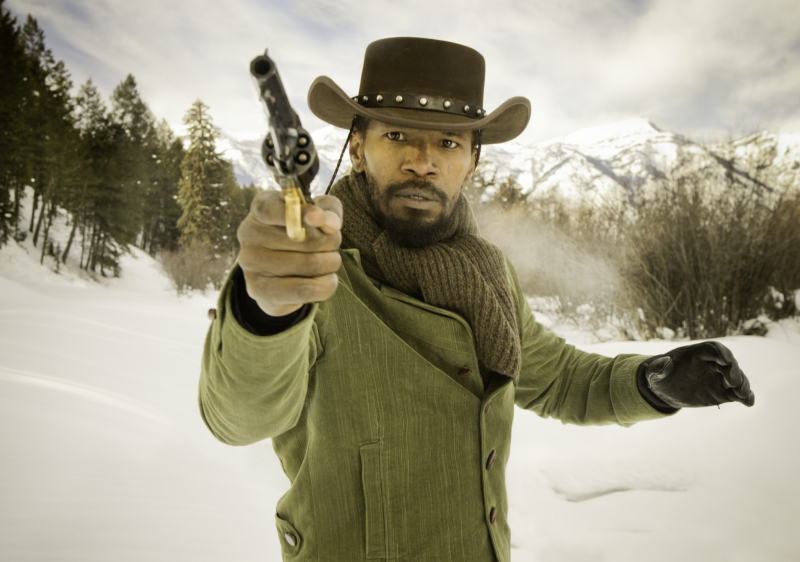
Source: IMDB -
Inglorious Basterds is the first Tarantino film to rewrite history. It demonstrates the director's incredible maturity while still retaining his style and personality. This movie is under more control, and more content with lengthy conversations. It employs concepts of being seen and unseen (everyone in this film is putting on an act for others). In short, Tarantino made a film about films.
Still, given its Second World War context, the movie never seems carefree. Tarantino is well aware of how horrific and awful wars - and particularly the Holocaust - could be. What made Inglorious Basterds so compelling is that Tarantino is obviously keeping his strengths while also stepping up his game. The conversation between Hans Landa (by Christoph Waltz) and a farmer (by Denis Ménochet) at the beginning is such a suspenseful sequence that you will stop breathing until it is over.
Tarantino then delivers a welcome break with the Basterds, which has one of Brad Pitt's finest portrayals as Lt. Aldo Raine. It’s amazing to watch the film unfold and see how representations are constructed (the Basterds leaving trails of slaughter) then destroyed (raising the three fingers).
Release year: 2009
Stars: Brad Pitt, Diane Kruger
IMDB score: 8.3/10
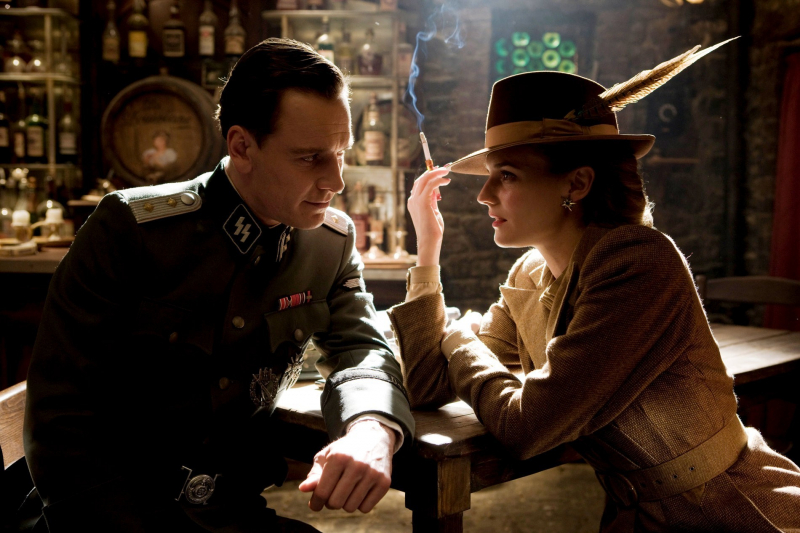
Source: IMDB 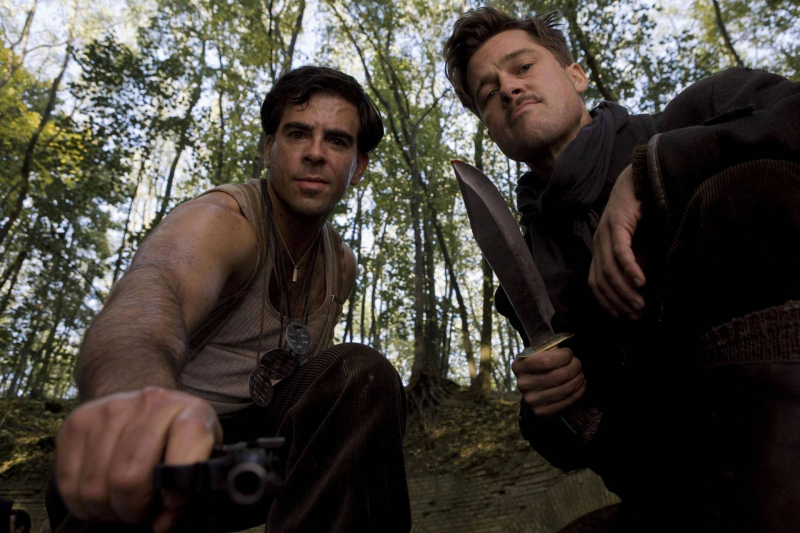
Source: IMDB -
Most filmmakers wish that they could make a picture as excellent as Reservoir Dogs once in their careers - much alone as their feature debut. While this is hardly Tarantino's greatest work, there could not be a more strong and secure career debut. Not only does it have all of Tarantino's markings, but it also touches on topics that Tarantino would revisit, as he concentrates on power relations, masculinity, and self-destruction.
Of course, you do not notice these things right away in Reservoir Dogs. What you see first are some nice people in cool suits, conversing in the manner in which we hope we could do with our buddies. Overall, the movie works brilliantly because, rather than establishing his group of robbers as the absolute pinnacle of cool, he has made a film about destroying them. It's no coincidence that the movie begins with the men laughing and joking - tossing about phrases like "You kill me in a dream, you must wake up and apologize” - and then cuts to one of them screaming in anguish and bleeding to death.
Release year: 1992
Stars: Harvey Keitel, Tim Roth
IMDB score: 8.3/10
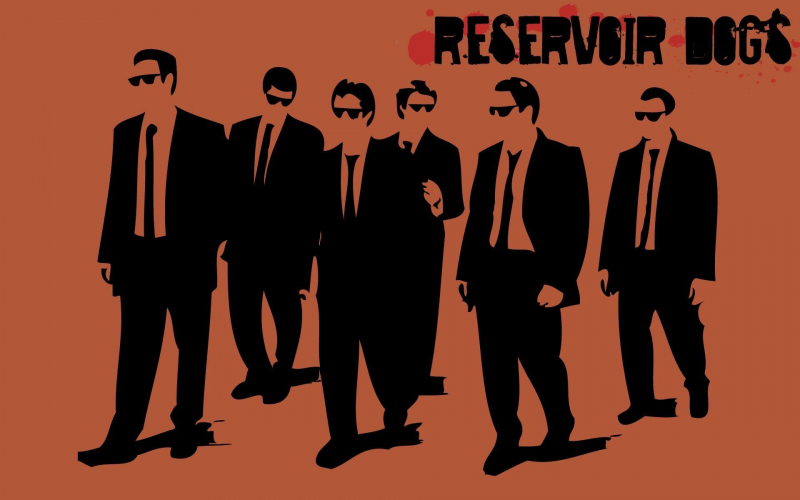
Source: Wallpaper Cave 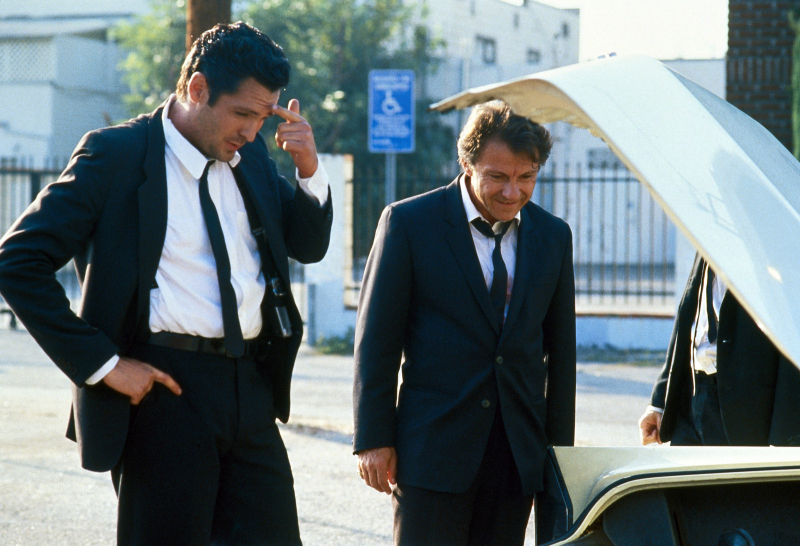
Source: IMDB -
Kill Bill Vol 1 is a real blast - considering it was intended to be a straightforward action film devoid of context. Basically, the whole movie is similar to a cartoon, serving as an ode to Japanese action flicks. It's visually stunning in terms of action choreography, has some of Tarantino's greatest needle drops, and retains a sense of glee despite the cold-blooded retribution pouring through its veins. Kill Bill Vol 1 also establishes Uma Thurman (together with her stunt coordinator Zoe Bell) as one of the finest action superstars of the twenty-first century.
However, the issue with this movie is that all the dramatic heaviness and rewards occurs in Vol 2, leaving you with little material in the first movie. Because the Bride's goal is seldom questioned, the audience just witnesses a murderous rollercoaster with no further explanation.
To be fair, Tarantino did drop some hints about the futility of revenge throughout the film - from Vernita's daughter witnessing her mother's murder, to O-Ren, whose own journey of vengeance propels her to the top of Tokyo's criminal underworld, only to be assassinated by somebody on their own path of vengeance. Still, these details are nothing in comparison to the true reckoning that occurs with the Bride's journey.
Release year: 2003
Stars: Uma Thurman, David Carradine
IMDB Score: 8.2/10
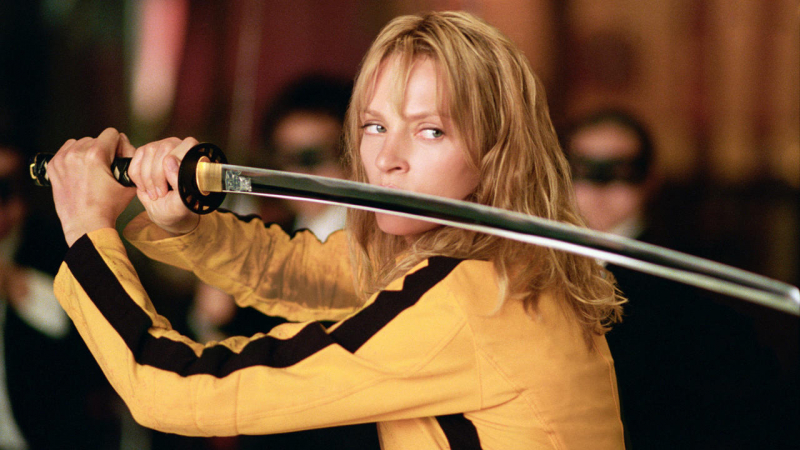
Source: IMDB 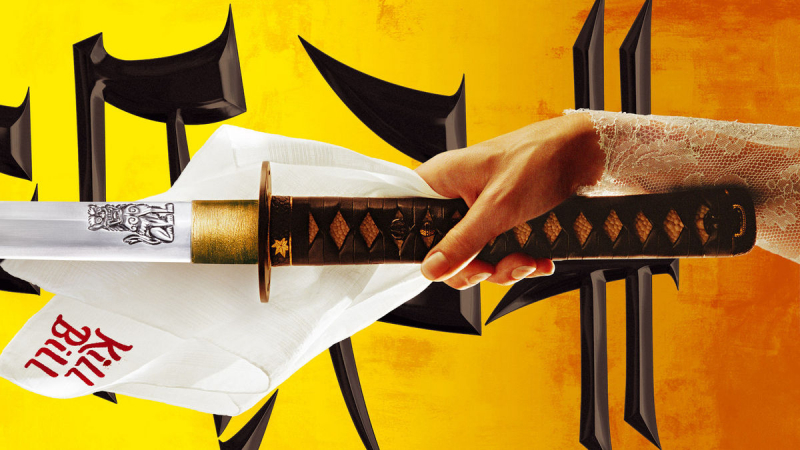
Source: Letterboxd -
Unlike Vol 1 - which is mostly focused on violence - Kill Bill Vol 2 is primarily conversational. However, you can now see the film's overall form, and Tarantino's effort is fairly experimental. He's trying to recount the narrative of Beatrix Kiddo, without implying that Beatrix ever did anything other than drive for vengeance. Rather than that, she remains a shadow; only the individuals she defeats inform us something about her.
According to Vivica A. Fox's Killing Vernita, Beatrix has lost interest in family because her life was (apparently) taken away from her. O-(Lucy ren's Liu) history is likely comparable to Beatrix's and demonstrates what Beatrix might be capable of as an underground leader.
However, as you reach Kill Bill Vol 2, the tone shifts to introspection. The film begins with the interaction between Bill and Budd (the two are siblings) and Beatrix and Elle. The audience can see that Budd is a somewhat pitiful creature. He's slothful, uncaring, and self-centered. Meanwhile, Elle is the embodiment of Beatrix's fury, and she must abandon that aspect of herself - screaming, cursing, and blind - in order to reach her goal.
Release year: 2004
Stars: Uma Thurman, David Carradine
IMDB score: 8/10
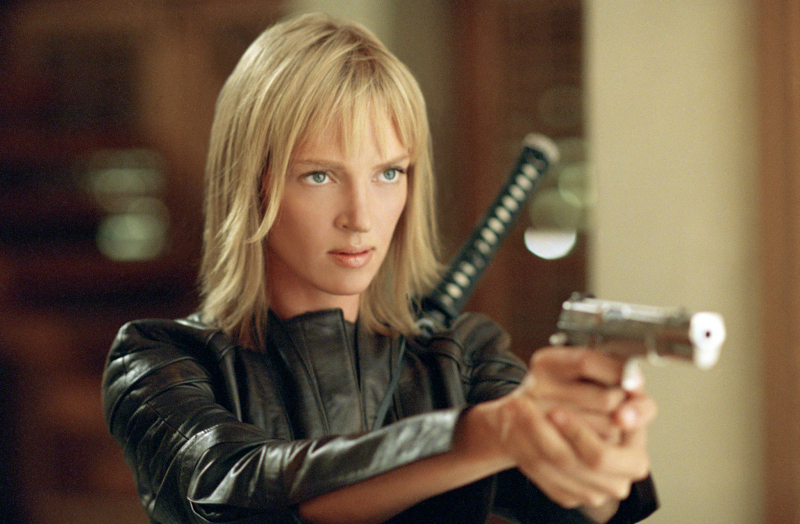
Source: IMDB 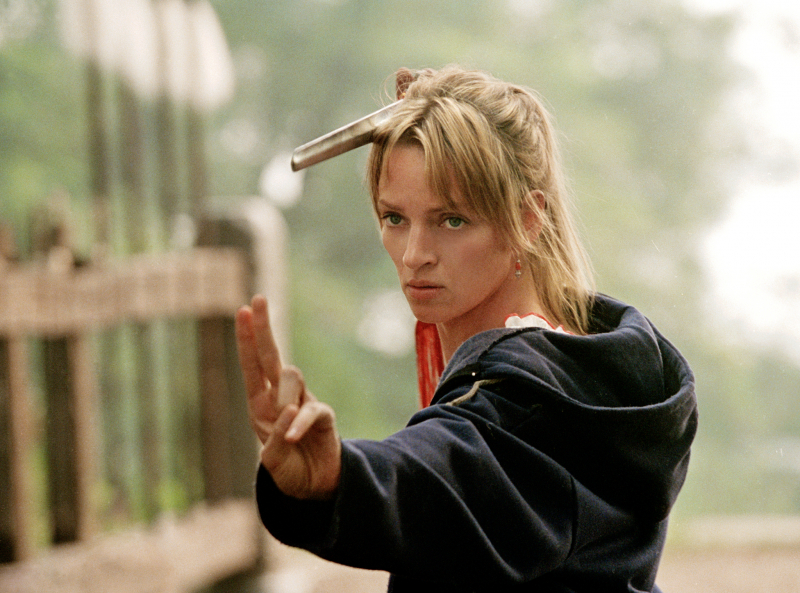
Source: IMDB -
In the dismal premise of The Hateful Eight, everyone will tear each other apart; their self-interests are the sole basis for mutual trust. The film's opening scene drives home that point, as John Ruth (by Russell) makes judgments solely on the basis of whether another person's self-interest matches with his own. There is no sympathy, compassion, or trust - only ego. This concept results in a frigid and tiny world that Tarantino (for some strange reason) decided to present in a 70mm dimension.
The immense grandeur - both physically and narratively - ultimately works against Tarantino's mean little narrative, and transforms what should be a taut thriller into a rambling drag. What makes The Hateful Eight so infuriating is that its themes are brutally contemporary, and they seem like a follow-up of Tarantino's interesting exploration of racial power relations in Django Unchained. However, the film's trappings seem like an overindulgence on the part of the writer/director - so much that Hateful Eight lacks all its intensity.
While it feels right for Ruth to present himself to everybody at Minnie's Haberdashery, the process takes forever, and this kind of sluggish pace transforms a languid narrative into one that is dull. While many Tarantino fans like Hateful Eight, they have no wish to return to it.
Release year: 2015
Stars: Samuel L. Jackson, Kurt Russell
IMDB score: 7.8/10
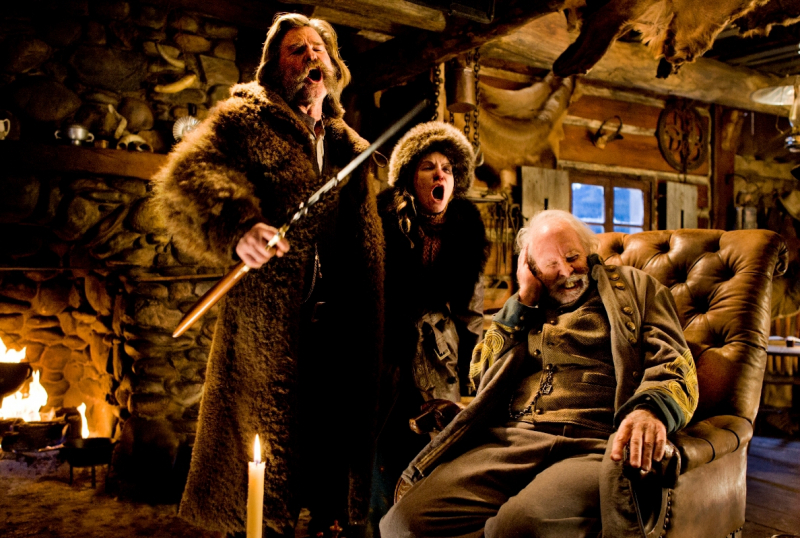
Source: IMDB 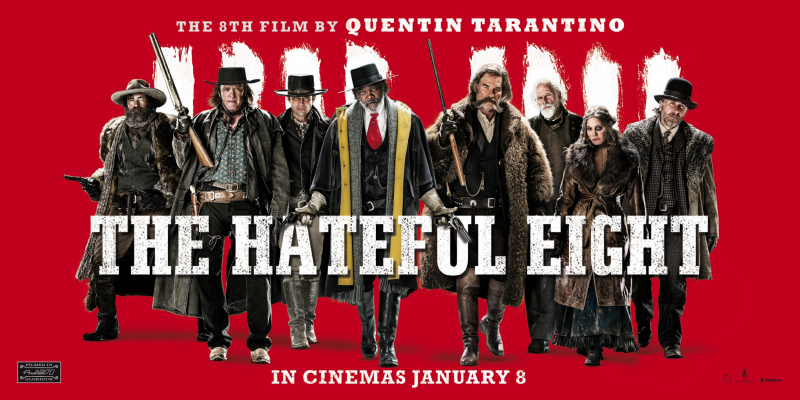
Source: IMDB -
Once Upon a Time… in Hollywood is Tarantino's closest approach to a hangout film. Unlike his previous works, no one is rushing to go anywhere in this one. You've got Rick Dalton (by Leonardo DiCaprio), a television actor seeking employment. Then there is Cliff Booth (by Brad Pitt), Rick's pleasant stunt double, who has been snubbed by the industry. And lastly, we see Sharon Tate (by Margot Robbie), who perfectly represents the future Hollywood - a future that never comes as she, her unborn child, and three of her friends, were all murdered later on.
Once Upon a Time in... Hollywood is a kind of last celebration of Hollywood’s golden age. It’s evident that he's comparing today's business turmoil to the upheavals of 1969. You can sense his sympathy for Cliff and Rick and Cliff; and although he harbors no ill will toward Sharon, he still keeps her at arm's length. We never discover her identity or her exact purpose - except from being a shining star and a charming person. Therefore, our love and devotion lie with Rick and Cliff, two men desperate to continue doing what they love.
Release year: 2019
Stars: Leonardo DiCaprio, Brad Pitt, Margot Robbie
IMDB score: 7.6/10
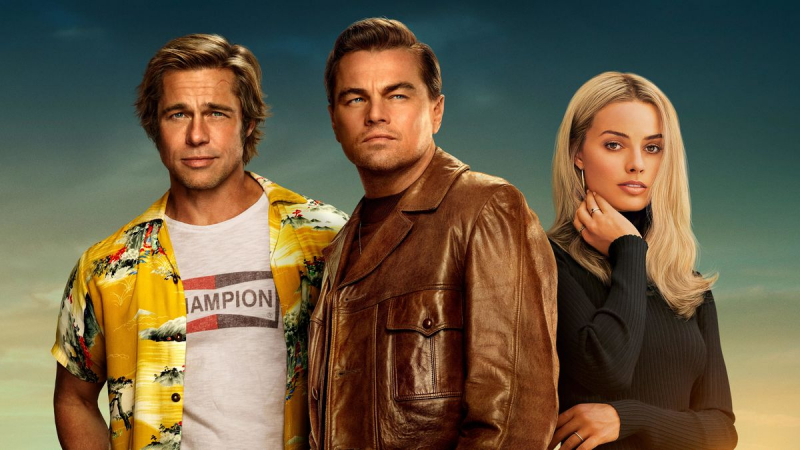
Source: Letterboxd 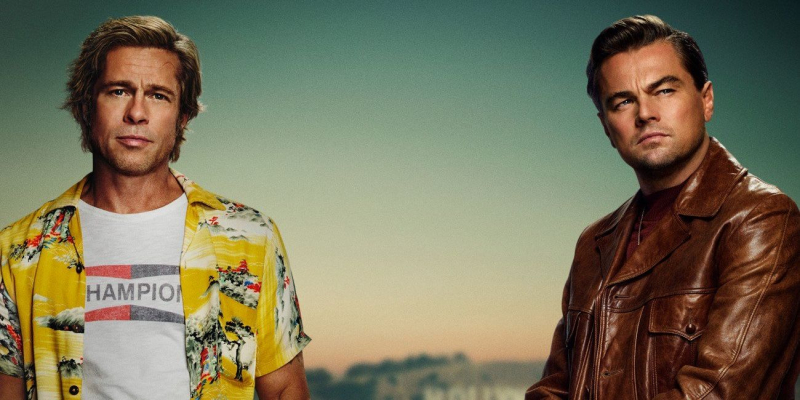
Source: Screen Rant -
Jackie Brown demonstrates the director's amazing courage. While it is inspired from Elmore Leonard's book, Rum Punch, it still keeps all of Tarantino’s markings, while also stretching the director's comfort zone.
Though we are sure the director still wished to repeat the popularity of Pulp Fiction, Quentin Tarantino took a radical departure from his previous films, while still preserving some of the themes addressed in them. What's instantly apparent about Jackie Brown is the way Tarantino redefined his entire style. For other movies, Tarantino always tried to destroy the seemingly ‘cool’ people. Meanwhile, the central character of Jackie Brown is an underdog, determined to prove she is the classiest person in the entire film.
The film's opening credits tell us a lot, almost telling the story of Jackie's life without using a single dialogue. First, she was carried along the grains, but then went against it (a fantastic shot with Jackie walking in one path and all the extras strolling in another). Eventually, she rushed quickly to reach the gate; this sequence perfectly demonstrated how she was struggling to keep her life together these days.
Release year: 1997
Stars: Pam Grier, Samuel L. Jackson
IMDB score: 7.5/10
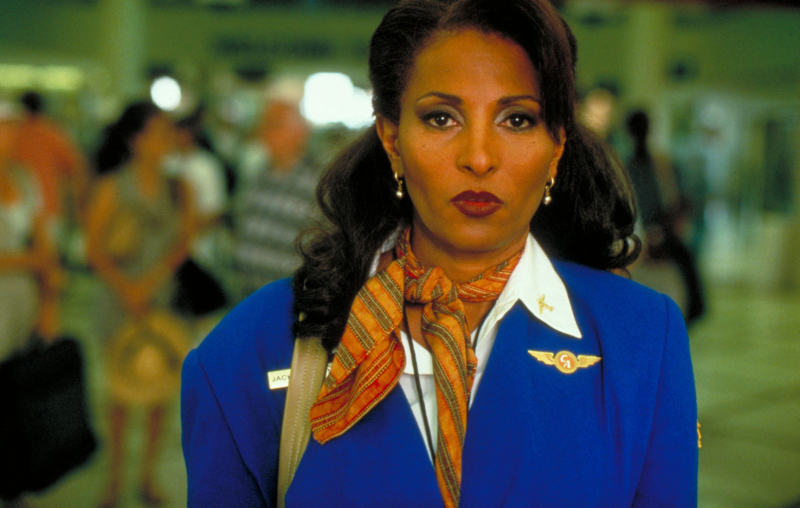
Source: IMDB 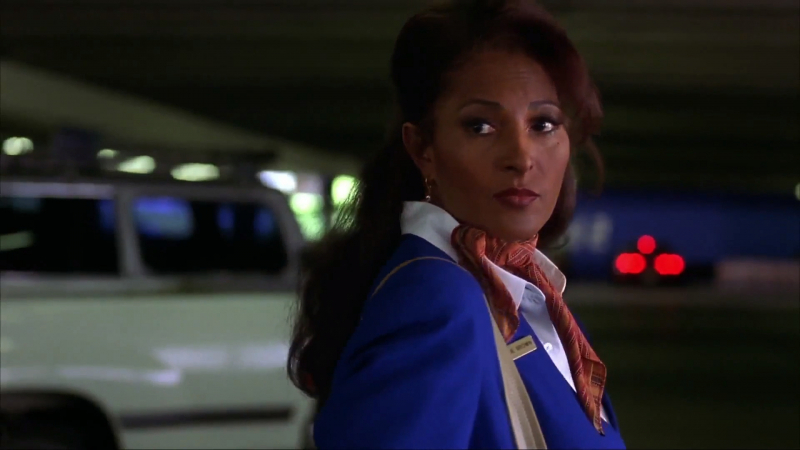
Source: IMDB -
Tarantino spends the first half of Death Proof convincing you to care for a trio of ladies and their journeys, as well as their individuality. You may not believe they are wonderful people, but you believe in them as individuals who are on their own travels and goals. And then Stuntman Mike (by Kurt Russell) arrives 0 attractive, powerful, and deadly - to kill the people we believed were our story's protagonists. We then meet four ladies we've never seen before; but then, Tarantino inverts the situation, so that not only does Stuntman Mike not get away with murdering them, but he is also recognized for the coward he is.
The primary problem with Death Proof is that the movie seems overall confusing - as a result of its association with Grindhouse. The first portion of the picture seems to be Tarantino sticking to the game's rules (the broken film, the abrupt cutting, the "lost" reel, and so on). However, by the movie’s second half, such allusions had virtually vanished. While it works from a narrative standpoint, it seems tone deafening in comparison to the whole "Grindhouse" theme.
Release year: 2007
Stars: Kurt Russell, Zoe Bell
IMDB score: 7/10
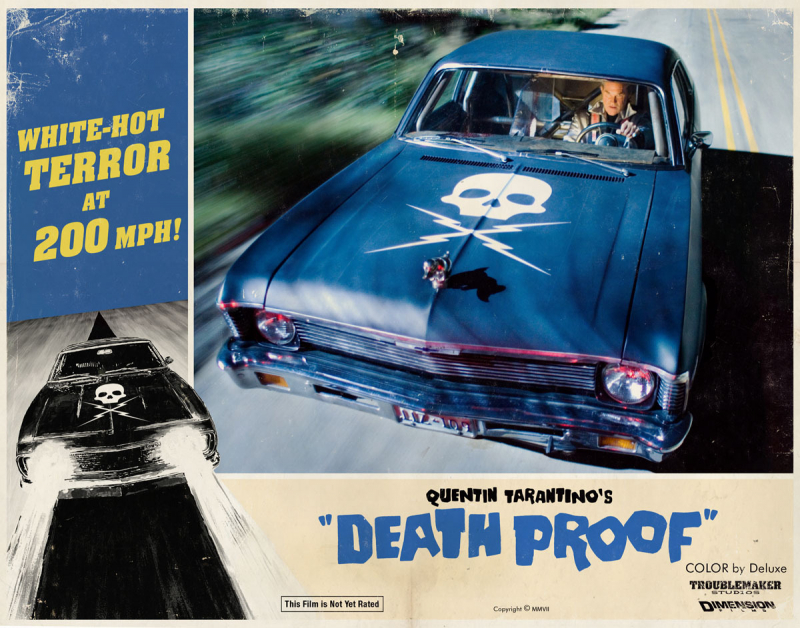
Source: IMDB 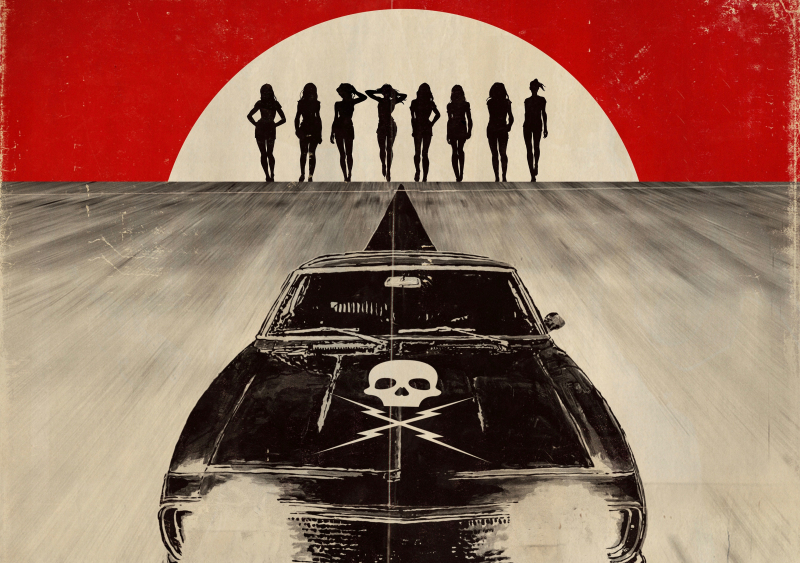
Source: Wallpaper Abyss - Alpha Coders












